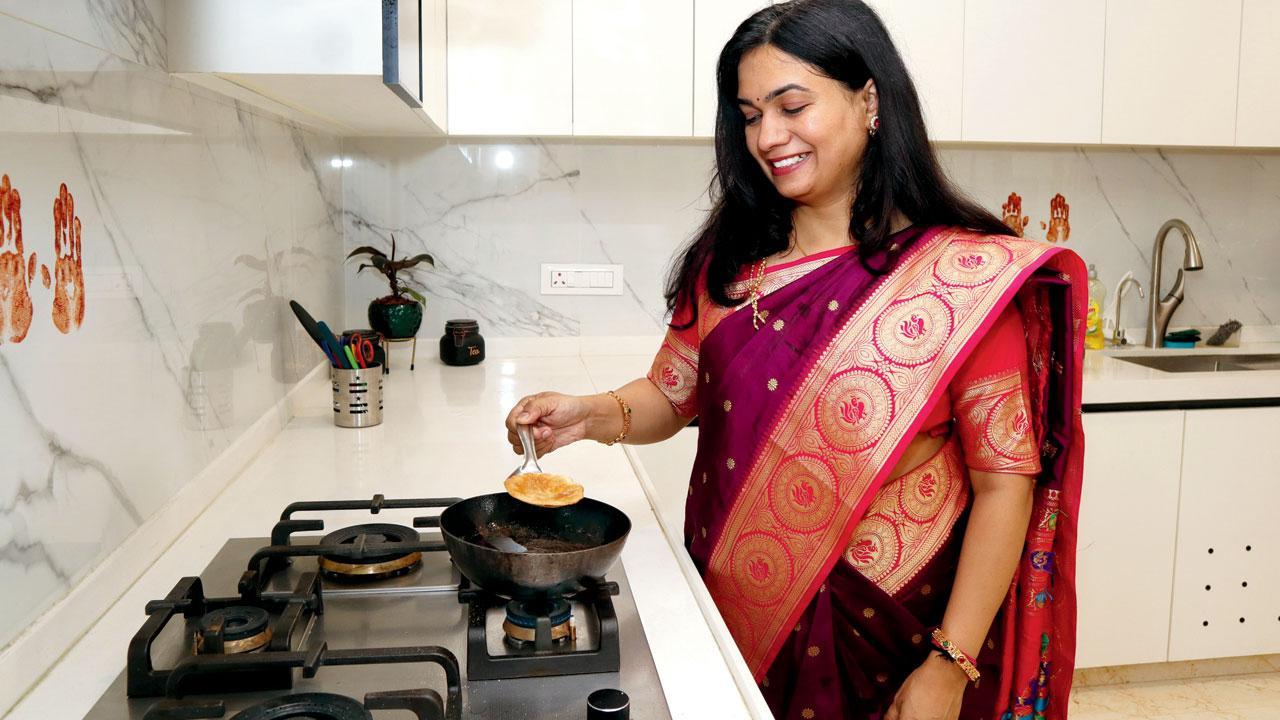Home / Sunday-mid-day / / Article /
Kadakani to shakarkandi tikki: Special dishes Indians prepare during Durga puja
Updated On: 22 October, 2023 09:14 AM IST | Mumbai | Nasrin Modak Siddiqi
The culmination of Navratri in Dussehra promises a dip in temperature and delicious treats. Sunday mid-day invites you to dig into regional treats

Chef Madhura Bachal making Durga Ma’s favourite kadakani which is also hand-rolled into bangles, earrings, and mangalsutra
On the seventh day of Navratri in Maharashtra, Kadakani, a crispy sweet puri is prepared and offered as naivedya to Ma Durga. Lesser mortals like us enjoy these thin puris with a cup of hot chai. “It tastes divine,” says Pune-based home chef Madhura Bachal. The dough is prepared using plain flour and powdered sugar. “Small puris are rolled out and pricked before frying so that they don’t puff up,” she adds.
Interestingly, a similar dough is hand-shaped into alankaras (jewellery) or fulora such as intricate bangles, earrings, and mangalsutra for the Goddess. Every household has its own recipe, but the base ingredients are more or less the same—refined flour, semolina, sugar, and ghee. Some even make a savoury version using besan and spices. “Kadakani must be fried on very low heat till it becomes hard and golden. As Dussehra marks the onset of winter, such deep-fried foods are made and enjoyed, and since they are crisp, they can be stored for a long time,” says Bachal.



